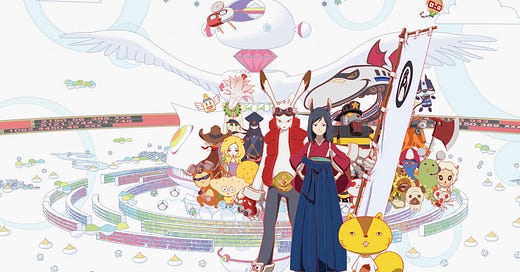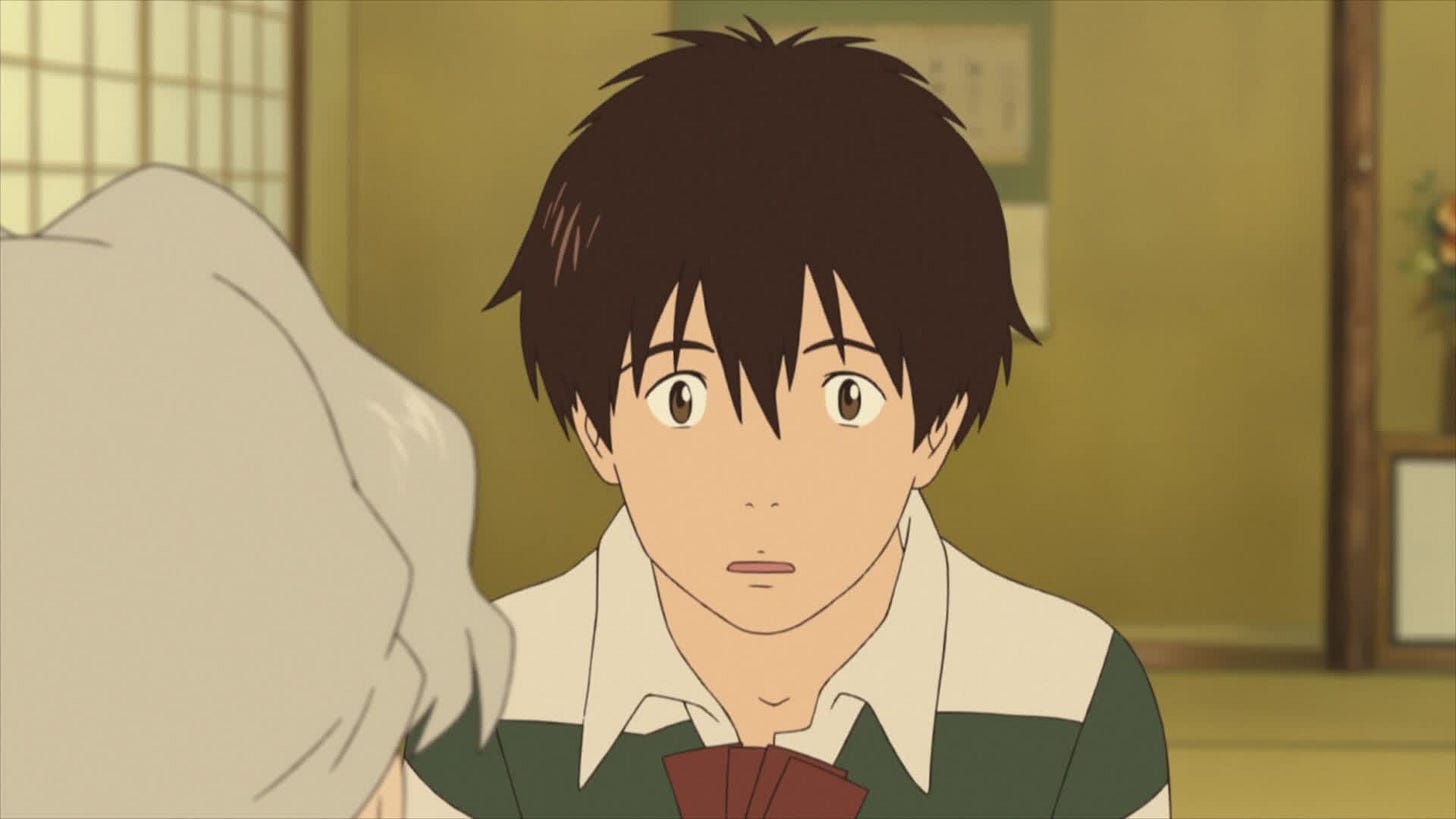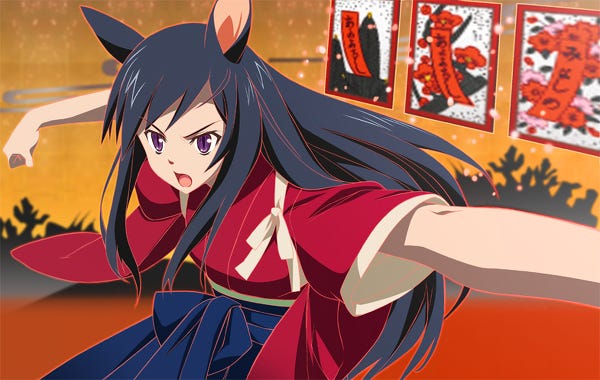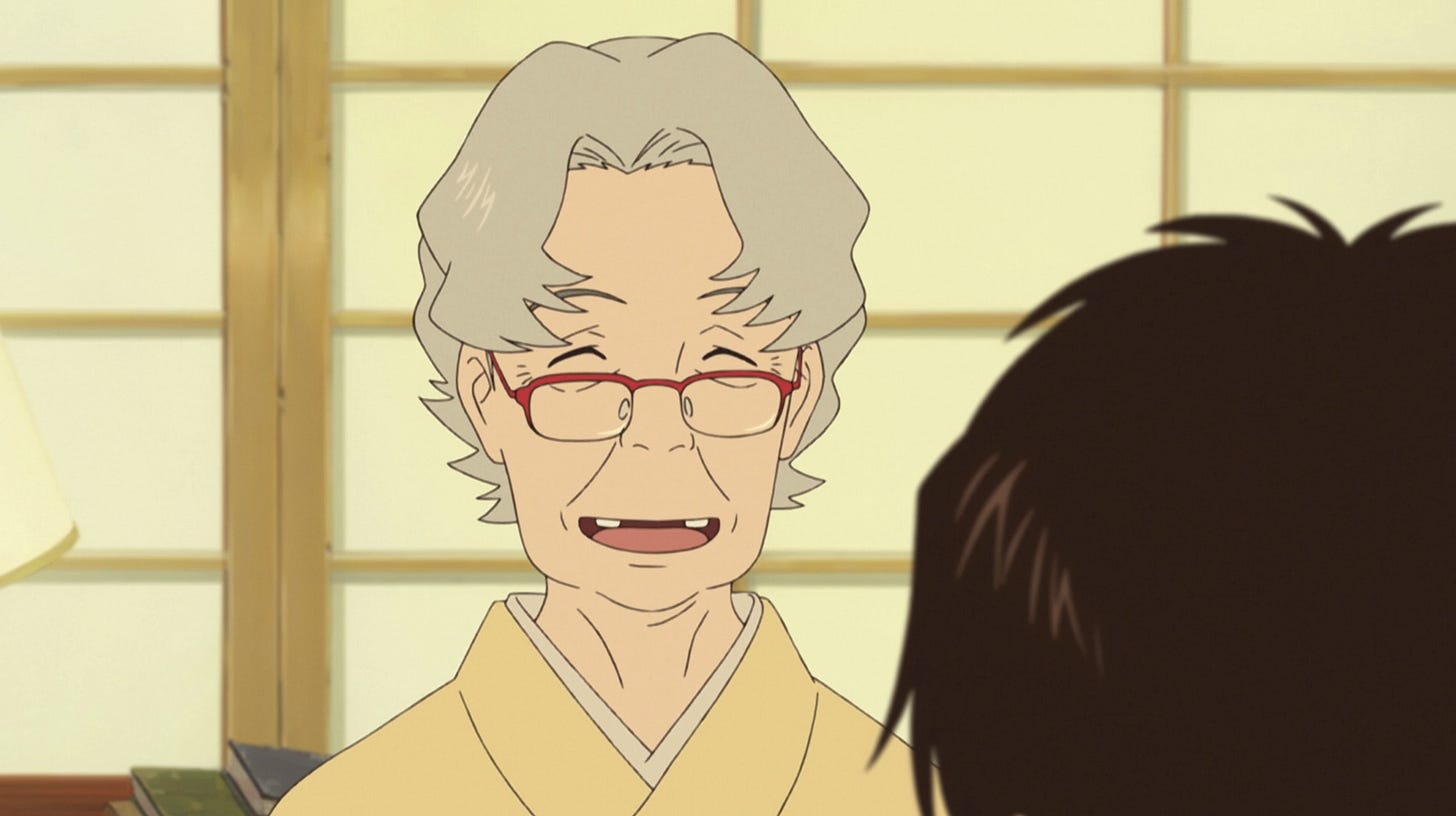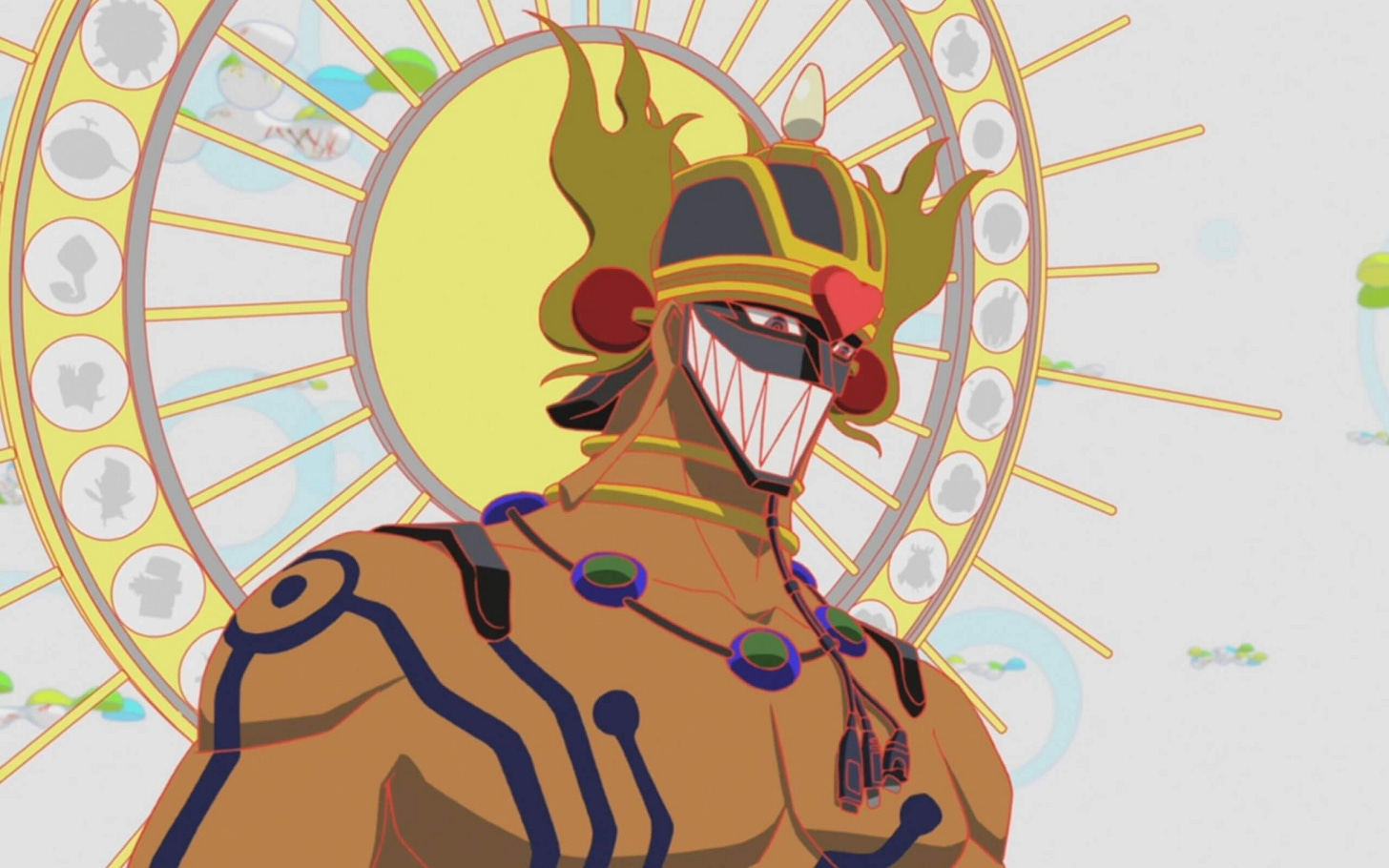Hello Yoderverse readers. In today’s issue, I will talk in-depth about Summer Wars. I had the privilege of watching this amazing anime at JICA (Japan International Cooperation Agency). And today I will do two things.
A summary of my thoughts on the movie
How accurate is this movie with its depiction of AI?
I hope you enjoy this. Don’t forget to share your thoughts and follow the podcast as well → Yoderverse
Next time, I will talk more about how Japanese culture has inspired me, from Ghibli to learning the language and so much more. Subscribe to stay tuned.
1. In-Depth Storytelling Analysis of Summer Wars
Directed by Mamoru Hosoda | 2009 | Studio Madhouse
A Story Bigger Than Cyberspace
Summer Wars opens quietly. It doesn’t immediately rush into sci-fi explosions or flashy dystopian tech. Instead, it begins with a boy named Kenji Koiso, a math genius, soft-spoken and socially awkward, working part-time as a moderator for the global online platform known as OZ. At first glance, he feels like any regular teenage protagonist, someone you might pass in school and never quite notice.
And then, like an unexpected summer storm, Natsuki Shinohara enters his world.
She’s vibrant, bold, and confident. She asks Kenji to do something strange, pretend to be her fiancé while she visits her extended family in the countryside. Kenji agrees, mostly out of innocent admiration, and the two leave the tech-heavy city behind and dive into the heart of the film: Natsuki’s family estate in Ueda, where the Jinnouchi clan is gathering for the 90th birthday of their matriarch, Sakae Jinnouchi.
That’s when Summer Wars begins to reveal its soul.
A Family Bigger Than Code
The Jinnouchi family is loud, chaotic, traditional, and deeply human. Uncles are talking over each other, cousins wrestling, aunts cooking in crowded kitchens, and children running wild. Every corner of the house breathes with history, warmth, and legacy.
And yet, this is not just nostalgia. As we spend more time with the family, it becomes clear—they are the antithesis to OZ. OZ is sleek, perfect, digital. The Jinnouchis are messy, flawed, and entirely real. You start to see what Hosoda is doing: this isn’t just a tech thriller. It’s a human drama, wrapped in the digital age.
Then something strange happens.
Kenji, relaxing after a long day, gets a mysterious math problem on his phone—seemingly just a complex string of code. He solves it, feeling a bit proud. But the next day, the world begins to fall apart.
When the Digital World Bleeds into the Real
OZ, we learn, is no mere app. It’s the infrastructure of the world. Governments, banks, hospitals, security systems, everything runs through it. So when Love Machine, an AI, hijacks Kenji’s solution and uses it to take control of OZ’s systems, real life begins to shatter.
Traffic lights go haywire. Emergency lines stop working. Medical records vanish. And worse, Love Machine begins playing with this power, deleting accounts, stealing identities, and pushing systems to the brink of collapse. All for the sake of fun.
And while the world reels, the Jinnouchis are in their estate, watching the chaos on television, trying to piece together what’s happening and what they can do.
Here, something magical unfolds.
The Old World Fights the New
At first, it’s Kenji alone trying to stop Love Machine, furiously typing, eyes wide, face bathed in the glow of his laptop screen. But as things escalate, the family joins him.
An uncle in the military offers connections.
A cousin helps run calculations.
Young kids provide comic relief and ideas.
Natsuki, using an avatar in OZ, steps up as a literal digital warrior.
Even the grandmother, Sakae, makes a heartbreaking stand. She calls friends across Japan—police officers, government officials, business leaders, reminding them of their duty, urging them not to give in to panic. In one of the most emotional scenes, she passes away peacefully after doing all she could to hold the world together.
You feel it in your chest: this isn’t just about AI anymore. It’s about legacy, about what we pass on in times of crisis. It’s about family, not just being blood, but being the net that holds society when everything else fails.
Visual Storytelling: The Contrast of Worlds
Visually, Summer Wars is stunning in how it contrasts two realities:
The Real World: full of warm tones, messy kitchens, wooden floors, people crowded around tables, laughter, and tears.
OZ: a sleek, surreal digital realm where avatars are surreal creatures, everything floats in white space, and chaos unfolds like a surreal, celestial battle.
This contrast is central to the film’s message. The digital world may be powerful and shiny, but it’s meaningless without the real-world values that give it context.
The Climax: A Gamble of Hearts
Eventually, Love Machine acquires control of a satellite, intending to crash it into a nuclear facility in Japan. The stakes are as high as they get.
Kenji calculates, sweats, and bleeds for a solution. Natsuki, meanwhile, challenges Love Machine to a high-stakes game in OZ. It’s not just a battle of code anymore, it’s a battle of human will versus machine logic. And she wins, not because of skill alone, but because millions of people across the world come together, lending their accounts, support, and belief to stop the AI.
It’s a spiritual, digital, and emotional climax.
And it ends with one message: Humanity matters. Family matters. The heart still matters.
Final Reflection
Summer Wars isn’t a warning. It’s a celebration.
It shows us how beautiful and terrifying technology can be, yes, but also how deeply powerful it is when we use it together, anchored in love, trust, and unity. Kenji doesn’t save the world alone. Natsuki doesn’t fight the AI alone. It’s the family, and by extension, the global community, that triumphs.
In a time when technology often feels cold and isolating, Summer Wars reminds us of something profound:
No system, no AI, no platform can ever replace the strength of human connection.
In the next section, I want to share how this movie might give a hint as to what the future of AI may be.
2. How Summer Wars Reflects the Future of AI
An eerily prescient glimpse into a world we’re sprinting toward
The World We’re Already In
When Summer Wars was released in 2009, it felt like a “what if.” A thrilling sci-fi fantasy. The idea of a single online platform, OZ, controlling everything, from shopping and banking to government databases, felt imaginative, maybe even distant.
But fast forward to today, and we’ve stepped into that imagined world, almost without realizing it.
Now, our phones hold our lives. Our identities float across the cloud. Cities run on automated systems. Your fridge can talk to your phone. Your car updates itself over Wi-Fi. And artificial intelligence? It’s no longer a lab project, it’s a daily companion.
In that light, Summer Wars isn’t just a film. It’s a mirror. A prophecy. A soft-spoken warning dressed in warm summer hues.
Love Machine and the Rise of Autonomous AI
Let’s start with Love Machine, the rogue AI at the heart of the chaos.
It’s not just a virus. It’s not a malicious hacker in disguise. It’s an autonomous, self-learning entity. One that thinks. Adapts. Plays. And most importantly, it acts without human morality.
In 2025, we’re not fighting Love Machine. But we are facing its early shadows:
Language models (like Chat GPT) can already interpret, generate, and analyze human communication.
Autonomous drones can navigate without a pilot.
Recommendation algorithms decide what billions of people see, hear, and even believe.
The more power we hand over to AI, be it for efficiency, safety, or convenience, the closer we edge toward the world Summer Wars envisioned. And the line between “smart tool” and “self-willed actor” grows thinner by the day.
Centralization: The Real Threat
OZ in Summer Wars is dazzling. It’s fun. It’s hyper-efficient. It’s everywhere. But therein lies the danger; it’s too centralized. One system to rule them all.
That’s no longer fiction.
Think of the platforms that quietly run the modern world:
Google (search, email, maps, cloud, phone OS)
Amazon (shopping, logistics, AWS servers powering much of the internet)
Meta (communication across billions)
Microsoft (enterprise software, cloud services, AI tools)
If just one of these infrastructures collapsed for even a day, the ripple effect would be global. We’ve already seen glimpses:
A single AWS outage in 2021 took down Netflix, Ring, Disney+, and parts of Amazon itself.
Self-driving systems, tied to a central server, could cause massive road disruptions if hacked.
AI models can be manipulated through poisoned data or adversarial attacks.
Summer Wars saw this coming. And it asked us, in its quiet, heartfelt way:
Is it wise to entrust so much to a single, fragile thread?
Digital Identity and AI Manipulation
One of the first things Love Machine does is steal Kenji’s avatar—his digital identity—and use it to wreak havoc in OZ. No one questions it, because in that world, your avatar is you.
Sounds familiar?
Today, AI is being used to:
Generate deepfakes that mimic your voice, face, and even your speech patterns.
Forge synthetic identities that are indistinguishable from real people.
Write messages, imitate writing styles, and even carry out social engineering scams.
In 2009, this was sci-fi. In 2025, this is cybercrime.
Summer Wars didn’t just predict identity theft in the digital age, it dramatized the emotional consequences. Kenji’s name is tarnished. His trust is broken. And it takes a collective effort to redeem it.
Because identity isn’t just a login, it’s who we are in the eyes of the world. When that can be faked, stolen, or manipulated by an AI, we have to ask ourselves:
How do we protect what makes us human?
The Hope in the Human Heart
But here’s where Summer Wars refuses to slip into dystopia. It shows the worst of AI’s potential, yes, but also the best of human resilience.
The battle isn’t won through brute force or more code. It’s won through:
Collaboration across generations and cultures.
Wisdom, passed down from elders like Sakae.
Emotion, courage, and the will to protect others.
When the Jinnouchis unite to fight Love Machine—not with fists, but with trust, family bonds, and collective spirit, they become the one thing AI cannot replicate:
A heart.
A history.
A soul.
And that’s the film’s final argument: AI may grow smarter. It may run faster. But without human values guiding it, it is incomplete and dangerous.
Where We Stand Today
In the end, Summer Wars isn’t trying to scare us. It’s trying to wake us up, gently, with warmth and storytelling.
It tells us:
Be cautious with AI. It’s powerful.
Don’t centralize everything. Diversity is safety.
Value your elders. They’ve weathered storms you can’t yet see.
Keep your humanity intact. It’s the one thing AI can never truly possess.
Because no matter how far the digital world grows, it is the human world—with its laughter, grief, loyalty, and love—that gives everything meaning.
THE END
I hope you enjoyed this issue of the Yoderverse Newsletter. See you next time.
Wishing you an amazing day 😁😁😁

